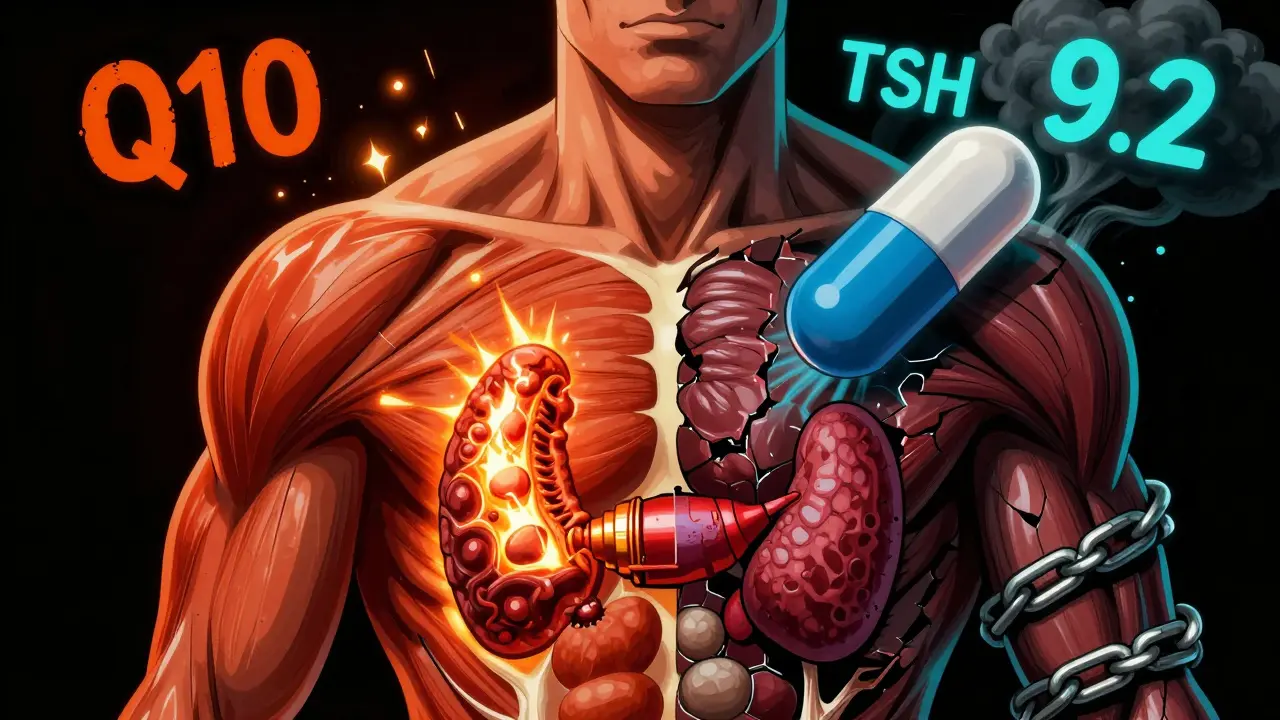Hypothyroidism: What It Is and How to Manage It
If your doctor ever mentioned "low thyroid" or you’ve felt unusually tired, you might be dealing with hypothyroidism. It’s when the thyroid gland doesn’t make enough hormones, slowing down many body processes. The good news? With the right info and a solid plan, you can keep symptoms in check and feel more like yourself.
Common Symptoms & When to See a Doctor
People with hypothyroidism often notice fatigue, weight gain, cold intolerance, dry skin, and hair thinning. Mood changes like depression or brain fog are also common. If you’ve had any of these for weeks on end, especially together, it’s worth getting your thyroid checked.
A simple blood test measuring TSH (thyroid‑stimulating hormone) and sometimes T4 will tell the story. High TSH means the pituitary is shouting for more hormone, a classic sign of an underactive thyroid. Most doctors can diagnose it in one visit.
Treatment Options & Lifestyle Tips
The main treatment is synthetic levothyroxine – a pill that replaces missing hormones. Start with a low dose and your doctor will adjust it based on follow‑up blood work. Take the tablet on an empty stomach, usually in the morning, and wait 30‑60 minutes before eating or drinking coffee.
Medication works best when you pair it with lifestyle tweaks. Aim for regular exercise; even short walks boost metabolism. Eat a balanced diet rich in iodine, selenium, and zinc – think fish, nuts, and whole grains. Limit soy and excessive fiber around medication time because they can interfere with absorption.
Stress management matters too. Chronic stress raises cortisol, which can mess with thyroid conversion. Simple practices like deep breathing, short meditation sessions, or a hobby you enjoy can keep stress in check.
Monitoring is key. After starting levothyroxine, doctors usually re‑check TSH every 6–8 weeks until it stabilizes. Once your levels are steady, annual checks are enough unless symptoms change.
If medication alone isn’t enough or you have an autoimmune cause (Hashimoto’s thyroiditis), your doctor might discuss additional options like combination therapy with liothyronine. Always talk through any changes – self‑adjusting doses can backfire.
Finally, stay informed but avoid info overload. Reliable sources include reputable medical websites and your endocrinologist. Knowing what to expect helps you spot real issues without unnecessary worry.
Living with hypothyroidism is a daily balancing act, but it’s manageable. By understanding the signs, getting proper testing, taking medication correctly, and supporting your body with good habits, you can keep your thyroid under control and enjoy life without constant fatigue.
Hypothyroidism and Statins: How Uncontrolled Thyroid Levels Raise Myopathy Risk
Hypothyroidism increases the risk of statin-induced muscle damage. Learn how uncontrolled thyroid levels raise myopathy risk, which statins are safest, and what steps to take to protect your muscles and heart.
Thyroid Deficiency: How It Slows Metabolism and Drains Energy
Understand how low thyroid hormones slow metabolism, cause fatigue, and what to do next. Learn symptoms, tests, treatments, and practical energy fixes.

